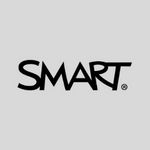We were lucky enough to sit down with Chris Degan and Elise Degan from Queens University to discuss their recent technology investment and implementation, including three SMART Interactive Flat Panels specifically for The Centre for Advanced Computing. The Center for Advanced Computing (CAC) at Queen's University is a department within the university that focuses on providing advanced computing resources and support for research and academic activities. It serves as a hub for computational research and data-intensive projects, offering high-performance computing infrastructure, data storage solutions, and expertise in various computational technologies. So of course, interactive and innovative technology is a must.
In this interview, Chris and Elise highlighted the key benefits of SMART Boards in their environment. One of the driving forces behind choosing SMART as a technology solution was the partnership with a Canadian company that is internationally recognized.
Prior to this investment, the staff at the CAC faced many challenges including collaboration and engagement. The staff felt it impossible to connect and collaborate like they once did in this new remote working environment. Chris looked to technology to aid in that connection.
“You're navigating a new norm. Every single one of our staff members prior to the pandemic worked in person, then we all switched to remote, and now we're in this gray area with hybrid. Our ability to support research, collaborate, increase our project reach, and provide resources for those projects, ultimately got bigger in that moment, right. Technology helps you connect, from end-to-end, where you are and where you're going.”
~ Elise Degen
The SMART Boards have helped address these challenges by providing a platform for interactive meetings, brainstorming sessions, and technical drawings. The technology supports the goals of the CAC, which include improving the hybrid workflow for onboarding research projects, enhancing project success, and facilitating collaboration and resource access.
The integration of SMART Boards at Queens University began with three boards specifically fitted to accommodate the Centre for Advanced Computing. The SMART Boards have been instrumental in supporting various functions at the university, including teaching, learning, research, and collaboration.
And it doesn't stop there. Because of the success SMART Boards have brought to the CAC, there are plans to onboard 30 to 60 more boards for other departments.
CAC at Queen's University utilizes the SMART Boards to engage different audiences, such as staff, faculty, and the research community. They use their SMART Boards to facilitate virtual meetings and collaborative sessions, allowing for interactive presentations and seamless integration between in-person and remote participants. Interactive boards, along with other AV equipment, provide high-quality audio and video, enhancing the overall meeting experience, in person and remotely.
When selecting technology, CAC looked for enterprise solutions with excellent support, warranty, and lasting capabilities. SMART's ability to provide a demo board for showcasing features and receiving team feedback was a significant factor in gaining support from the leadership team. The SMART team's assistance in understanding use cases and technical setups further solidified the decision to invest in SMART Boards.
“A big part of why we invested in SMART was of course because the technology is phenomenal, they’re a leader in the space. But also the people at SMART. I think that was a big driving force for me to invest the time into understanding the technology, how I could integrate it into our workspace. No question that was too small, just as enthusiasm to present the technology.”
Elise and Chris from Queens University say that the SMART Boards have proven to be a valuable tool in overcoming the challenges of the new work environment and achieving the Center for Advanced Computing's objectives in teaching, learning, research, and collaboration.
Learn more about how SMART products fit into higher education spaces here:


